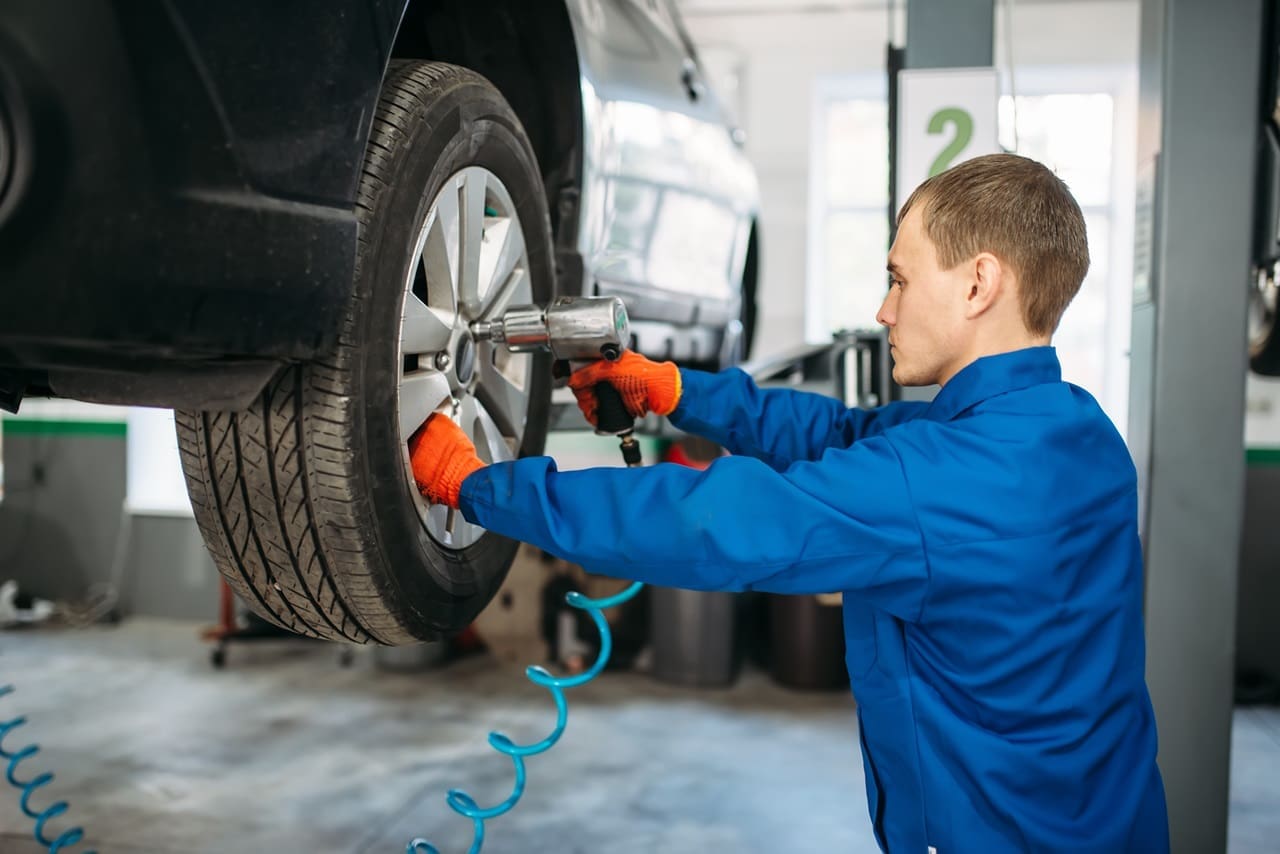Knowing whether new tires go on the front or back of your car can mean the difference between getting where you need to go and losing control of your car on the road. Nevertheless, about as many people know whether new tires should go on the front of back of your car as those who know when to change a car’s air filter (by which we mean… not many).
But unlike having issues with your car’s air filter (which can include your car heater not getting hot or your car’s A/C making noise when turned on), having issues with your tires often go unnoticed or ignored until the driver comes across a nasty situation on the road. Don’t let that person be you.
Learn how to tell if your tires need to be replaced, whether to put new tires on the front or back of your car, and several other tips to add to your pre-road trip car inspection.
Do front or rear tires wear faster? Tread depth & tire health.
One key to both being able to diagnose the health of your tires and knowing if tires should go on the front or back of your car is the concept of tread depth. Tread depth is the measurement of the amount of tread rubber that extends from the grooves of the tire to the outside rubber that comes into contact with the ground.
Two simple ways to measure tread depth are “the penny test” and “the quarter test.” For the quarter test, grab a quarter and insert it into the tire tread (make sure Washington’s head is facing you). If the tread reaches or passes the top of Washington’s head, the tire’s tread is in good shape.
For the penny test, repeat the same process as the quarter test, except with a penny. If you can see all of Lincoln’s head after inserting the penny into the tread, then you need to get your tires replaced ASAP.
Once you’ve measured the tread depth of your tires, you will likely see that your front two tires have worn down quicker than your back tires. This phenomenon is due to the fact that most commuter vehicles use front wheel drive — where the car’s direction and steering are managed through the tires on the front axle. Because of this, they receive more wear and tear on those front two tires.
Note that this will likely not be the case for rear-wheel drive cars and 4×4 vehicles.
Is it OK to replace two tires at a time?
Yes! If you’ve been putting off new tires because of money issues or you simply have the habit of procrastinating (we’re looking at you, dear users of the Texas vehicle inspection grace period), then know that it’s okay to replace just two tires at a time.
That being said, depending on your car and how you drive it, it may be wise for you to replace all the tires on your vehicle at once. If you’re not sure, check with your mechanic to see what they recommend. And remember: if you replace all four tires, then you won’t have to worry about knowing whether you should put new tires on the front or back of your car.
Should you put new tires on the front or back of your car?
Let’s imagine that you have a front wheel drive car and you only have enough funds to pay for two new tires. So, where do you put the best tires on a front wheel drive car?
For the vast majority of drivers, your front-wheel drive car will be better served if you put the newer wheels on the front axle of your car.
While the rationale behind this decision is undergoing some debate, the current thinking for why to put your new tires on the front of your car is that — should a tire blow or another similar tire issue occur — it would be worse for that to happen to a front tire.
Why? This is because drivers are more accustomed to steering using the front two tires, and you would be put at a disadvantage if something happened to those tires. It’s safer, then, for your front two tires to be in better condition than your back two tires.
Colony One Auto: Putting new tires on the fronts (and backs) of cars since 1991
Colony One Auto recognizes that auto repair is full of confusing questions, including, “Should I put new tires on the front or back of my car?” We pride ourselves on being able to answer these questions for our clients, and on being able to provide the proper service required to take care of any car repair issues you may have.
The wheel is, in its own way, still one of man’s greatest inventions. Let us give your tires the care and attention they need, so you can stay safe on the road. Contact us online or give us a call at 281-800-9209 today.

